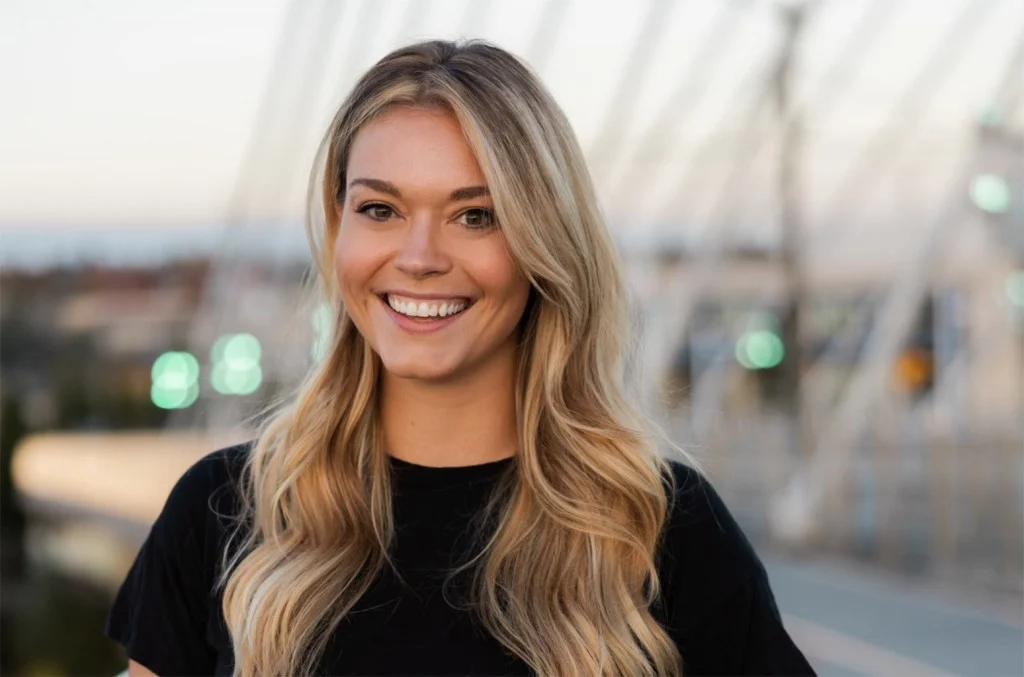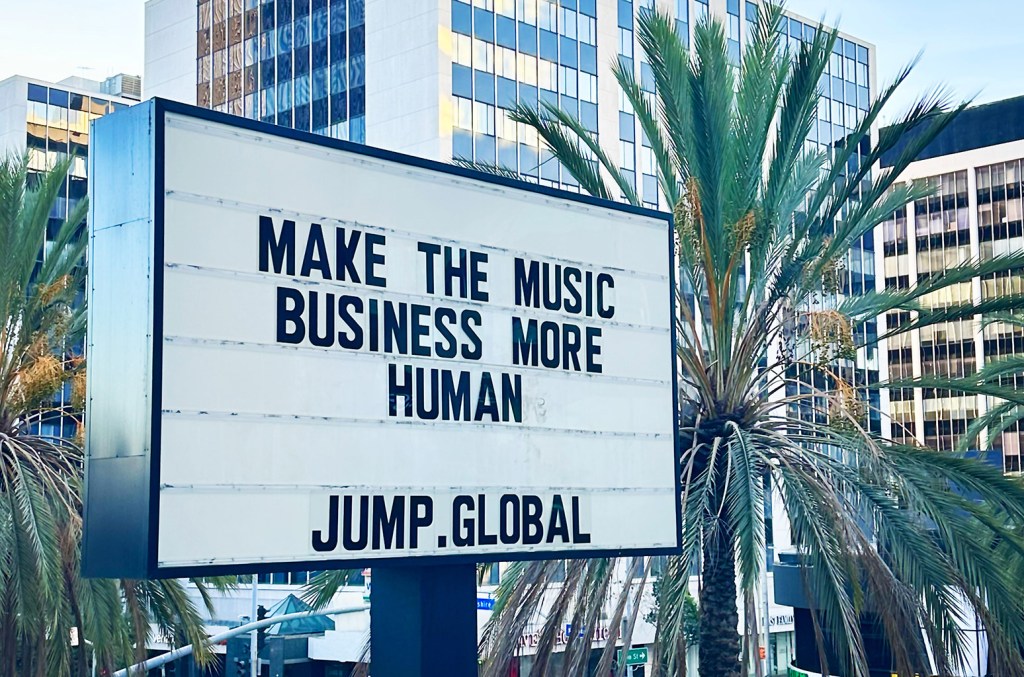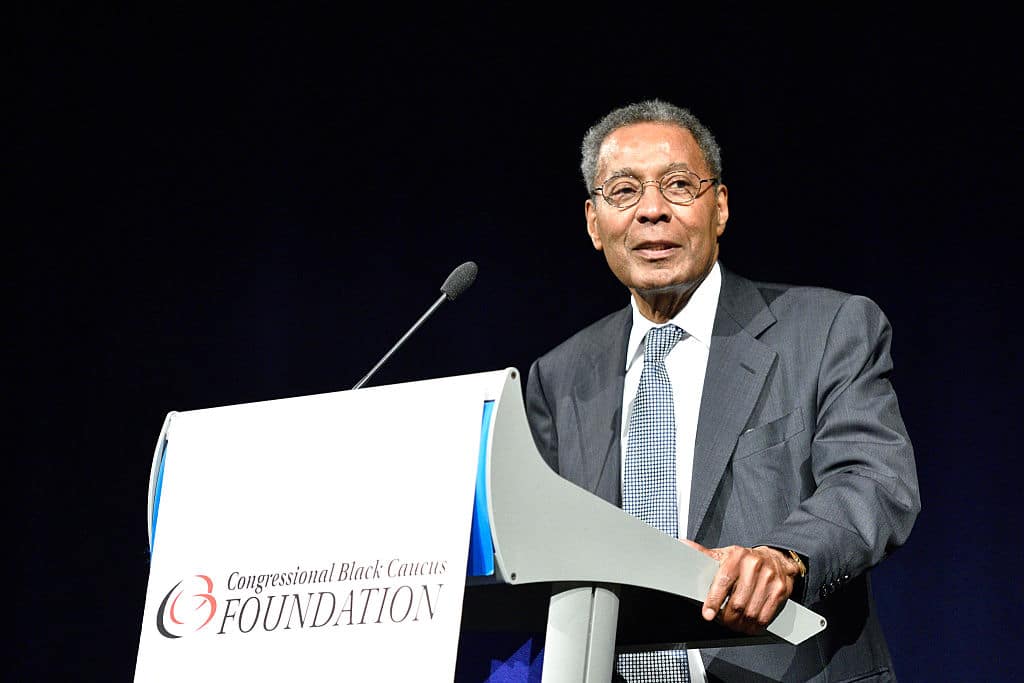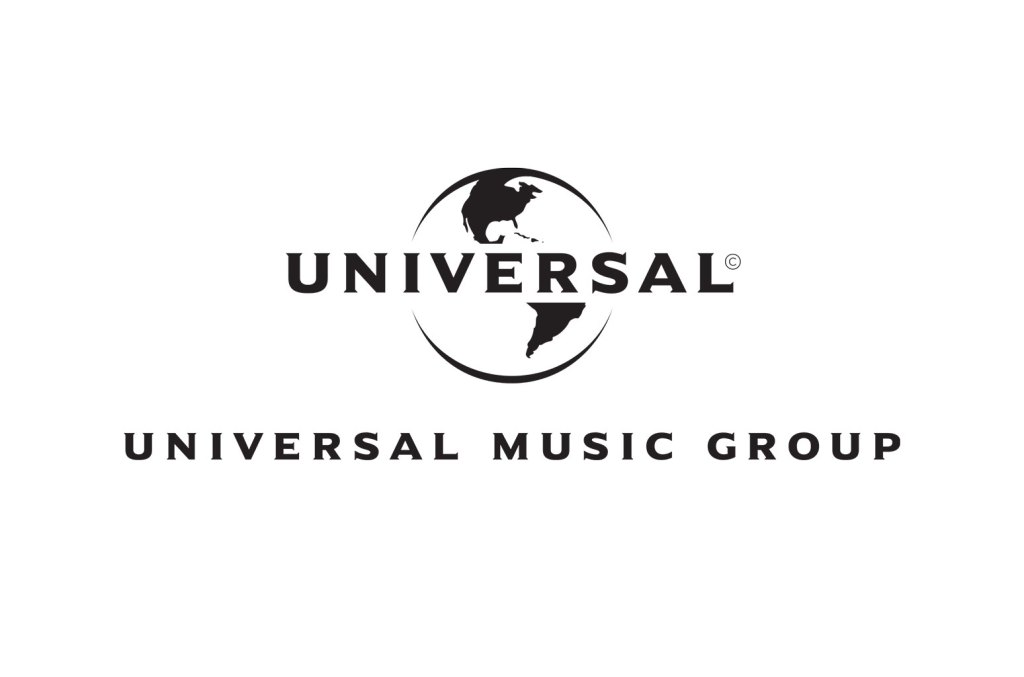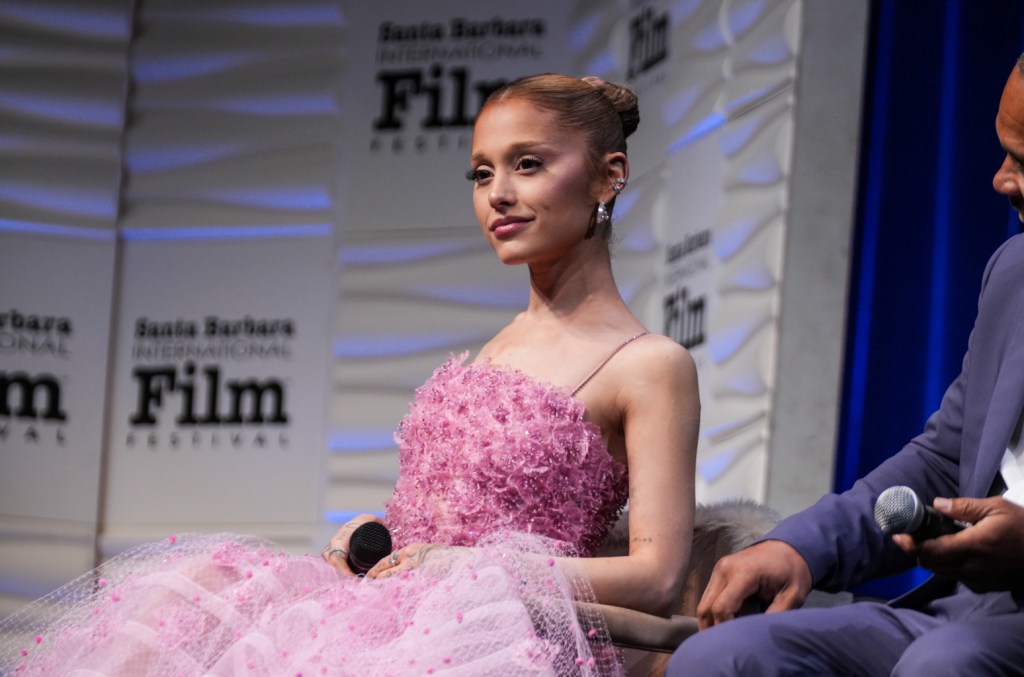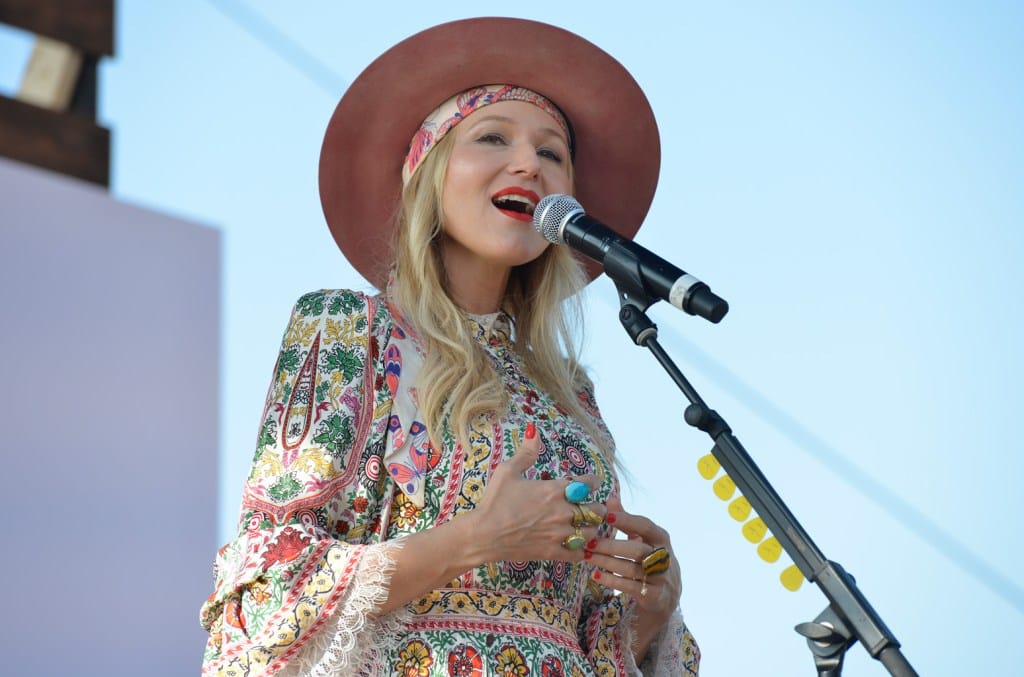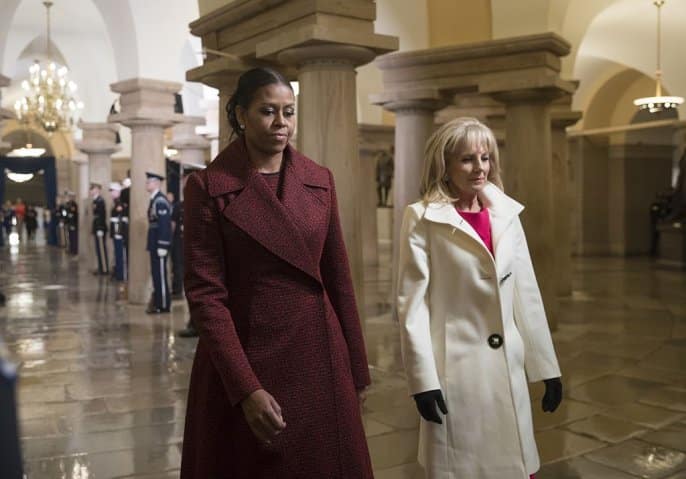mental health
Page: 2
The Recording Academy’s MusiCares and mental health provider Amber Health are teaming up to look into the touring professionals’ well-being. The partnership will launch mental health study for touring professionals, entitled Headlining Mental Health: A Tour Study. Both artists and crews are encouraged to take part. The research will mark a pivotal step in addressing […]
Grimes was recently diagnosed with both ADHD and autism, the singer revealed in a lengthy X post sharing her thoughts on childhood learning disabilities.
While calling out what she sees as a social media “subculture” of “extreme infohazards” posing as helpful online mental health resources, the “Oblivion” artist wrote, “Got diagnosed w adhd/ autism this year and realized I’m prob dyslexic which is why I can’t spell at all without spellcheck.”
“I feel like, had we known this when I was a child I would have worked so much less hard, been on drugs, and so many of the weird obsessions and motivations I had would have been seen as pathological,” she continued. “I could have written off certain things that were very hard for me but I’m glad I over came them.”
Trending on Billboard
Noting that she thinks too many people are “self-diagnosing” mental health conditions, Grimes added, “My adhd symptoms were infinitely worse when I wasn’t an avid reader. An adhd account trying to pathologize one of the best things a child can do to help with adhd (and also become an auto didact and knowledgeable person etc etc) is so dark … I think the nature of this uninformed social media mental health subculture is rly a big concern.”
The Mayo Clinic defines ADHD, or attention-deficit/hyperactivity disorder, as a condition marked by difficulty paying attention, hyperactivity and impulsive behaviors, while autism spectrum disorder is listed as a condition “related to brain development that impacts how a person perceives and socializes with others.”
The American Psychiatric Association estimates that 8.4% of children and 2.5% of adults have ADHD, while the CDC says that about 1 in 36 children have been identified with autism spectrum disorder.
Grimes hasn’t released an album since 2020’s Miss Anthropocene, which reached No. 32 on the Billboard 200. She has, however, dropped a string of singles and collaborations in the years since, including her most recent track “Idgaf” — a recovered unreleased demo that the Canadian musician finally added to streaming services in February.
Around the same time as the new track dropped, Grimes once again addressed how ex partner Elon Musk brought their 4-year-old son, X, with him to the White House earlier that month. “I would really like people to stop posting images of my kid everywhere,” she told TIME in a Feb. 24 feature of the highly publicized ordeal. “I think fame is something you should consent to. Obviously, things will just be what they are.”
On Feb. 2, group chats across the music industry lit up when Chappell Roan used the Grammys stage to implore record labels to cover healthcare costs for their artists. Perhaps few chats were more active than the one between employees at Backline, the mental health nonprofit serving music professionals.
“[Our group chat] was on fire as soon as she started talking… this is a conversation that we have all the time,” says Hilary Gleason, Backline’s executive director. “So to see it platformed in that way really resonated with us and encouraged us. We were all just blown away that she chose to use that moment in that way, not having any idea that a week later, we would be where we were.”
Where they are is in a privileged position. On Super Bowl Sunday (Feb. 10) — after Roan hit back at a Hollywood Reporter op-ed by a former A&R executive who criticized her speech by daring him to match her $25,000 donation to help “struggling dropped artists” — Roan and Backline jointly announced the We Got You! campaign, launched with $25,000 donations from Roan, Charli XCX and Noah Kahan (who had previously partnered with Backline to provide mental healthcare for all 78 band and crew members on his We’ll Be Here Forever Tour). Billed as “a fund to support artists’ mental health,” the campaign has resulted in an influx of donations to the nonprofit, including matching $25,000 donations from Sabrina Carpenter, Live Nation, AEG, the Wasserman Foundation, Guy Oseary, Sumerian Records and the Hinterland Festival, among others. Since launch, the campaign has netted the organization $353,000 and, perhaps more importantly, raised its public profile overnight.
Trending on Billboard
“Our biggest challenge has always been getting the word out,” says Gleason. “So this moment that happened around Chappell at the Grammys has really given us that exposure and opportunity to really connect with people who’ve never heard about us and could utilize these kinds of resources.”
Launched in October 2019 by more than 50 music industry professionals following the suicides of several prominent musicians, Backline provides a case management program that offers one-on-one support for music workers who need help navigating the often-knotty mental health care space. The organization helps link these workers with therapists and 170 partner organizations — including MusiCares, the Sweet Relief Musicians Fund and the Black Mental Health Alliance — that together form a clinical referral network boasting 1,150 providers across all 50 states, over 85 percent of whom have experience working with music professionals or have worked in the industry themselves. Backline also hosts annual clinical training for providers; sends out free touring care packages that include wellness products and mental health resources for professionals on the road; hosts weekly industry support groups; and offers free or heavily discounted wellness resources from partners that offer services including yoga, breath work, meditation and nutrition.
When Gleason learned that Roan had chosen to support Backline from a list of options the artist’s team had presented her with, she was flattered but uncertain that it was the right fit, given that Roan’s speech had focused on overall healthcare, not just mental health.
“I actually pitched a few of our partner organizations in that moment, saying, you know, this could be a really great moment for some of these other organizations who have a broader focus,” says Gleason. She was surprised, then, when Roan’s team came back to her and insisted Backline was the choice. In hindsight, Gleason sees the wisdom in Roan choosing to partner with Backline, which notably boasts Joshua Knight and Matt Runner — co-founder and agent, respectively, at Roan’s agency Wasserman – on its board of directors.
“I think the throughline of the work that we’re doing in mental health is a foundational piece of the larger conversation around access to health care,” says Gleason. “If you’re struggling with your mental health, it can be really hard to sign up for insurance, get your finances in order, go see a doctor, go see a dentist. Any of those pieces can feel really overwhelming if you don’t have the mental health foundation in place. And so we see this as the first step of accessing healthcare in a greater capacity.”
Since the influx of donations came through — including from many of Roan’s fans — the picture for Backline has changed. As Gleason puts it, the organization’s strategic plan for 2025 is now being looked at “with a bit bigger lens.” While she says they “want to stick to our core programs,” the extra money will “allow us to make some moves more quickly,” including upgrading the organization’s case management system this year. It will also allow Backline to expand its marketing efforts “farther into the music industry,” she says: “We really want to hit every corner, make sure that whether you’re in a tour bus, in a studio, in an office, you know that this is a resource that exists for you.”
Since the launch of We Got You!, Gleason says Backline has received an encouraging swell of support from music companies, noting that they’ve seen more corporate donations in one month than they did all of last year. While receiving support from individuals is important, she agrees that companies must shoulder the responsibility of caring for their artists and staff.
“Last year, we did 1.4 percent of our total raise from corporations, and that’s really where we want to see the change — for [companies] to invest in this and take care of their employees and their artists and be a part of this positive moment,” Gleason says. “It’s easy enough to email your whole staff and say, ‘Here’s all of Backline’s resources.’ It’s harder to say, ‘And we’ve made a donation, and we’ve earmarked that donation for your care.’ But we’re starting to see that kind of thing happen more and more, and we’re hoping that this moment really gets people thinking about what their plan is. And I think more artists are going to be looking for that as they are signing with labels and agencies and management companies.”
Of course, receiving the public support of Roan and other stars is the kind of marketing money can’t buy, and that added visibility, in addition to the flood of donations, has led to a spike in interest from music professionals looking for help. Gleason says Backline has had 205 submissions to case management in 2025, more than twice as many as it had at the same time last year (87) — an increase she attributes to both the Los Angeles wildfires (a Backline social post offering free therapy to those affected by the fires was shared by celebrities including Justin Timberlake and Common) and the We Got You! campaign. Notably, Backline has seen more producers, promoters and back-of-house professionals coming through its case management system — artists have historically made up 40 percent of cases — including an increase in music workers who hail from states including Texas, Maryland and Missouri, Roan’s home state. One of those cases, in particular, has stuck with Gleason.
“One of the submissions [was] from a young artist in Missouri, and that’s exactly what [Roan] was speaking to, and the work that we’re trying to do day in and day out,” she says. “So for [that artist] to learn about the resource, utilize the resource — I can’t think of a more perfect circle.”
The music business needs a hug…and a punch to the gut.
As someone who cares deeply about mental health, wellness and supporting people in need, my intentions with this letter come from the purest place of love and empathy. But if I’ve learned anything from my time in the music industry — it’s to be direct. Today, I’m calling for more consistent, accessible personal and professional development support for the people who keep the music industry’s wheels turning. These include things like leadership and communication training, adaptability and resiliency coaching and a basic understanding of emotional intelligence. We cannot have a healthy industry inhabited by healthy humans without the intersection of mental health and professional and personal development. We need to move beyond just checking boxes for things that look good on paper, but do not actually impact those owning the day-to-day operations of our business. It’s unsustainable long-term. What good are resources if the business itself doesn’t support their use? How can we seriously promote wellness while maintaining conditions within the workplace that undermine it? The need to invest in both our well-being and create healthier work environments is becoming dire as we navigate unprecedented mergers and acquisitions, rampant layoffs due to our ever-evolving business, and an increasingly competitive landscape that shows no signs of slowing down.
To start, we could benefit from operating with less ego and more empathy. Leaders can always strive to be better decision-makers and communicators, with a focus on humility and understanding for their teams and partners. They hold the power to make change, but also face immense pressure, and we need to support them in guiding the industry. We also need more people who genuinely care about human growth, and are equipped to fight for changing outdated systems.
These precursors are required to address what our artists are expressing on stage at award shows and what professionals are discussing off the record over dinner. I can’t speak for everyone, but I can speak for the hundreds of people I’ve met over the past five years, including those who attend our jump.global Annual Summit, where we host open forums on these critical topics. Yes, we’re good at calling this all “mental health,” and to some extent, it fits under that umbrella. But it’s so much more than that. It’s dealing with the real-life effects of endless company reorgs, constant performance critiques, burnout from the grind, lack of healthy work-life boundaries and an industry that prioritizes making money without making sure its people are happy with their personal growth.
Trending on Billboard
These aren’t new revelations. The industry has long been criticized for its broken promises and dehumanizing culture, but we’ve reached a tipping point. People are mentally and physically exhausted, overwhelmed by constant fatigue and the whiplash of relentless demands. They are caught between morning meditation and breathwork sessions, only to be thrown into the chaos of endless emails and unclear paths to advancement. It’s real, and it’s widespread, impacting every part of our personal and professional lives. The music industry must embrace the people who have always been its heart and soul — artists, fans and workers alike. It’s time to nurture the relationships that sustain it, offering the support, care, and recognition that has often been overlooked, and ensure that everyone involved feels valued, heard, and connected. It needs to become so systemic that it’s as common as composing an email or pitching a release. Are we truly listening to the feedback of our teams as much as we are to the charts? If we put people over profit, we can turn this around — but without this shift, we risk burning out the very people who keep this industry alive.
This sentiment is echoed by the coaching community I’ve turned to for my own research and development. “When mental, physical and emotional health are prioritized as part of the fabric of an organization, company culture changes, people get more creative, productivity increases, communication improves, performance gets stronger,” says Marni Wandner, board-certified health coach, executive coach and 22-year music industry vet. “I work with both executives and artists, most of whom are trying to prevent burnout, or recover from it. When people are at their best, the whole industry benefits – and the way we take care of ourselves and each other affects the wellbeing and success of the artists.”
Outside of overall health, It’s important to note how much leadership training plays such a crucial role in all of this. “When we develop our leaders and prepare them well, they can manage their teams effectively and compassionately. We can create better work cultures, retain talent in the industry, reduce burnout and improve performance,” Tamara Gal-On and Remi Harris, UK-based coaches and Co-Founders of the Music Leaders Network, share in a joint statement.
Effective communication has also been identified as a crucial component of strong leadership. Tracey Pepper, a veteran media and public-speaking coach and certified personal coach, shares, “I work with high-level executives every week who are expected to inspire and motivate their teams, whether it’s sharing ideas or delivering feedback, but who have never sought support around developing their communication style. Yet, how they interact with colleagues and co-workers has a significant effect on company culture and, in turn, productivity. Being aware of how you’re impacting others by how you speak to them is a game-changer in leadership.”
I ask nearly everyone I meet about this disconnect, and the consensus is clear: our industry doesn’t necessarily lack awareness of how important professional and personal development resources can be, it lacks the time for people to properly dedicate themselves to it because of how intense and fast-paced their jobs can be. Without an immediate ROI, development often feels like a “luxury” that companies and people can’t afford or something we save for an end-of-year planning session. But what if we stopped viewing it that way and started treating it as the necessity it clearly is?
While I applaud any music company with Learning & Development programs already in place, I hope the journey doesn’t stop after one-off grants, seminars or annual workshops. We need to create ongoing learning environments where professionals are empowered with the tools to thrive personally and professionally. The strength of the business lies not just in the artists we promote or the music we create, but in the culture we nurture within our teams. Developing strong, emotionally intelligent humans that work in music isn’t just a nice-to-have — it’s critical for the long-term success and sustainability of the industry. “What is emotional intelligence?” is a fun one to type into ChatGPT, and then compare back to the music business.
Of course, there has been discussion and debate over whose responsibility it is to provide tools in these areas. To be fair, I think it’s everyone’s collective responsibility. Thankfully, generous programs and organizations are already leading the charge to end stigmas and provide essential resources, research and guidance. Again, while much of the headlines focus on mental health, a lot of them work intersectionally through all the areas I mentioned. Backline, Music Industry Therapist Collective, Music Health Alliance, MusiCares, Amber Health, Keychange and numerous coaches and therapists are making a lasting impact and creating meaningful, sustainable change in the industry. We owe a lot to these organizations, as well as those leading ongoing efforts in diversity, equity, inclusion, gender parity, fighting ageism and supporting neurodivergent education.
That said, there is always more that can be done and this is an invitation for all of us to do our part if you are not already. While innovating and commercializing music, we must also dismantle outdated systems and create forward-thinking support for both creatives and the workforce. As we work to heal the world with music, we must first extend that same care to those who make it all possible. Through compassion, empathy and kindness, we can do this.
We are all human, and no matter our title, company, or paycheck we all can, and will, benefit from these changes. To the artist managers who just lost their biggest client, the marketing directors struggling to juggle 20 releases, the people who have devoted their lives to a role only to see it eliminated, the CEO who ascended the corporate ladder only to be knocked back down and to anyone who has ever felt unseen, unsupported, or confused by the industry they love … I see you. This is why we need systemic change that supports you consistently, not just when it becomes impossible to ignore. Whether it’s implementing a new way to foster open communication within your department or simply gifting a coaching session to a colleague – we can all work together to shape more resilient cultures.
So, dear music business humans, I hope you’ll accept this hug and pass it on to the friends you’ve made along the way, the teams you manage, the interns you inspire, the artists you collaborate with and those you’ve yet to meet. To all of the music business-at-large, the gut punches may feel like love taps, but I promise you they carry enough weight to impact your bottom line — today or tomorrow.
With immense love, gratitude and concern,
Nick Maiale
Nick Maiale is the founder & CEO of jump.global – an agency solution for music executives and companies looking to grow their influence through B2B trade marketing, conferences & panels, international relations, college mentorship and more. He is studying to become a certified executive coach with a mission to bring more personal and professional development events, such as the jump.global Annual Summit, to the music business masses.
HipHopWired Featured Video
Alvin Poussaint, a psychiatrist who applied his studies to assist those within the civil rights movement, passed away on Monday (Feb. 24). Among Dr. Alvin Poussaint’s accomplishments, he was also instrumental as a consultant for several television series throughout his career.
Dr. Alvin Poussaint was born on May 15, 1934, in East Harlem, New York. As a studious child, Poussaint’s love of reading translated into his study and love of the sciences in high school. After entering Columbia University, Poussaint earned a pharmacology bachelor’s degree in 1956. He then entered Cornell Medical School and was reportedly the only Black student admitted that year and earned his M.D. in 1960. This experience shaped Poussaint’s worldview and was a continuance of the racism he experienced in high school and undergrad.
Poussaint would go on to become the chief resident at the UCLA Neuropsychiatric Institute but left the role in 1965 to join the Medical Committee for Human Rights as its Southern Field Director in Jackson, Miss. Poussaint completed his residency in 1964 at UCLA, earning an M.A. degree. Poussaint focused his efforts at the time on working to dismantle racial segregation, arguing that racial bias was detrimental to the mental health of the Black community. While working for the committee, Poussaint and his colleagues administered care to those working in the civil rights movement, many of whom endured physical violence and mental warfare under the guise of segregation.
In 1967, Poussaint became a faculty member of Tufts Medical School where he served as the director of the school’s psychiatry program situated in a low-income housing project. He also used his time in the role to illustrate that race relations in the nation still needed to improve despite the strides made at the time. In 1969, Poussaint left Tufts and joined the faculty of Harvard Medical School, where he remained for the rest of his career as a professor and associate dean of student affairs. Even in those hallowed halls, Poussaint never put civil rights on the back burner and continued to champion the movement.
During the 190s, Poussaint was known as a media consultant for scripts for Black sitcoms, including The Cosby Show and A Different World among others. His role was to ensure that what was depicted onscreen truly mirrored the real lives of Black families and students along with highlighting the positives of Black family life. Government agencies such as the White House, the Department of Health, and the FBI also sought guidance from Poussaint.
Poussaint did have his fair share of critics, especially those who thought his assessment of racism as a mental health condition instead of a divisive systemic practice that placed Black people under its weight. While well-meaning, some believed that putting racism in the same realm as a mental health disorder discredited the very real racism Black and non-white people faced across the country.
Dr. Alvin Poussaint is survived by his wife, Dr. Tina Young Poussaint, with whom he had a daughter. His first marriage to Ann Ashmore ended in 1988 and the pair had a son. According to his spouse, Poussaint passed away in his Chestnut Hills, Mass. home.
Poussaint was 90.
[h/t The History Makers & The New York Times]
—
Photo: Getty
Universal Music Group (UMG) and Nashville-based non-profit Music Health Alliance (MHA) are expanding their relationship to launch the Music Industry Mental Health Fund, which will provide comprehensive, high-quality outpatient mental health resources for music industry professionals across the United States, it was announced Thursday (Feb. 13).
The new partnership, which builds upon the healthcare access program launched by UMG and MHA in April 2021, will provide a range of mental health services, including individualized recommendations for mental health professionals; grants to help offset costs; and funding resource recommendations to ensure continuity of care through additional financial and mental health support. Clients from UMG and beyond will have access to MHA’s team of advocates, with initial inquiries receiving a response within 24 hours.
“Music Health Alliance possesses the comprehensive resources necessary to address the full spectrum of mental health needs for music industry professionals,” said MHA founder/CEO Tatum Hauck Allsep in a statement. “This includes financial assistance, a continuum of care for both mental and physical health, and wraparound services such as psychiatric support, facilitation of intensive outpatient and inpatient programs, and data collection. MHA’s holistic approach ensures a long-term commitment to the health, well-being, and sustainability of the music industry workforce.”
Trending on Billboard
Services will be open to current and former music professionals, including those outside of UMG.
“We have been working on ways to establish a streamlined pathway for mental health access, funding and care planning,” said UMG chief impact officer Susan Mazo. “Growing and continuing our partnership with Tatum and the Music Health Alliance was the most natural way to ensure continuous and effective mental health support for anyone working in our industry.”
In addition to the expanded services, MHA offers a full spectrum of mental health and healthcare advocacy services, including dental care resources via the Richard M. Bates SMILE Fund, group health services, healthcare advocacy and confidential guidance. MHA, which boasts more than 32,000 members from across the music community, also offers individual/family healthcare insurance, senior care support via Price Legacy Fund and vision care resources.
According to UMG and MHA, the entities’ earlier healthcare access program, which provides a healthcare concierge to clients, has served nearly 1,000 clients to date and saved them more than $12.5 million in healthcare costs.
Ariana Grande was put through the ringer as a young star — and now that she’s older, she’s advocating for change in the entertainment industry so that the people who follow in her footsteps have an easier time.
On the latest episode of WTF With Marc Maron posted Monday (Feb. 10), the singer-actress said that therapy should be a “non-negotiable” part of record-label contracts for young signees, while reflecting on the whiplash of finding fast fame as a Nickelodeon actress-turned-pop star in the early 2010s. “I was 19 when all of that nonsense started happening to me,” she began of the immediate public scrutiny she faced in the spotlight. “It started when I was so young with my body or rumors about my relationships or about my team or about my mom or about people I love. There was just no limit.”
“It’s so important that these record labels, these studios, these TV studios, these big production companies make [therapy] a part of the contract when you sign on to do something that’s going to change your life in that way, on that scale,” Grande continued. “You need a therapist to be seeing several times a week.”
Trending on Billboard
Adding that big entertainment companies “should be responsible for protecting” young creators from the mental turmoil that’s almost guaranteed when they become globally famous in a short period of time, the Wicked star again said that counseling “should be non-negotiable” in contracts. “To be an artist, you are a vulnerable person with your heart on your sleeve,” she said. “So the same person who is meant to do art is the exact same person who is not meant to deal with that s–t.”
Grande’s comments echo what she previously said on Penn Badgley’s Podcrushed in June, when she revealed that she was “reprocessing” her time on the shows Victorious and Sam & Cat after allegations of sexual harassment and toxic workplace conditions from other former child stars came to light in the documentary Quiet on Set. At the time, the Oscar nominee said, “I think that the environment needs to be made safer if kids are going to be acting, and I think there should be therapists … I think there should be parents allowed to be wherever they wanna be.”
The topic is also newly prevalent considering Chappell Roan’s much talked-about best new artist speech at the 2025 Grammys, which sparked debate between the Midwest Princess — whom Charli XCX, Halsey and Noah Kahan later backed up — and former music industry executive Jeff Rabhan. In her speech, Roan had called on labels to “offer a livable wage and healthcare” to signees, “especially for developing artists.”
Later, after Rabhan called her take “wildly misinformed” in an op-ed published in The Hollywood Reporter, Roan clapped back by donating $25,000 to funds for struggling artists and wrote on Instagram Sunday (Feb. 9), “Sharing my personal experience at the Grammys wasn’t meant to be a crowdfunded bandaid but a call to action to the leaders of the industry to step up, help us make a real change and protect their investments in a sustainable way.”
Listen to Grande open up about the importance of therapy for young stars below.
Ariana Grande has a lot of gratitude for Thank U, Next. While reflecting on her career in an interview with The Hollywood Reporter‘s Awards Chatter podcast, the singer-actress opened up about the therapeutic powers her smash 2019 album had during a “dark” period in her life.
Of writing and recording Thank U, Next over the span of two weeks just a few months after her previous album, Sweeter, dropped in August 2018, Grande said on the episode posted Monday (Feb. 3), “I think I needed it.”
“I was doing so much therapy, and I was dealing with PTSD and all different kinds of grief and depression and anxiety,” she continued. “I was, of course, treating it very seriously, but having music be a part of that remedy was absolutely contributing to saving my life. They were dark times, and the music brought so much levity.”
Trending on Billboard
It’s not the first time the “Yes, And?” singer has opened up about pouring herself into the Thank U, Next creative process. Around the time she was making the album, she publicly dealt with the grief of losing ex-boyfriend Mac Miller, who died in September 2018, as well as the heartbreak of her split from ex-fiancé Pete Davidson the following October. Months prior, Grande’s Manchester concert was targeted by a deadly terrorist attack, after which she struggled with PTSD.
“[Thank U, Next] poured out with urgency, and it was made with urgency,” she added on Awards Chatter. “It was a means of survival. The label understood that, but they were also very hesitant to stop Sweetener dead in its tracks and move onto an album so quickly … I just said, ‘I don’t really care about the formula. I don’t want to play by the rules at this moment, because this is what I need for my soul.’ It felt really healing and freeing.”
The album ended up spending two weeks atop the Billboard 200, with its title track leading the Billboard Hot 100 at No. 1 for a total of seven weeks. Grande performed songs from both LPs on her subsequent Sweetener World Tour in 2019 — during which time she started hearing “murmurs” that her favorite Broadway musical, Wicked, was in talks to get the live-action treatment in Hollywood, she told Awards Chatter.
Flash forward more than half a decade, and Grande is now Oscar-nominated for her portrayal of Glinda in Jon M. Chu’s adaptation of the show. After the academy unveiled its nominees in late January, the “We Can’t Be Friends” artist wrote on Instagram, “i’m humbled and deeply honored to be in such brilliant company and sharing this with tiny ari who sat and studied Judy Garland singing Somewhere Over the Rainbow just before the big, beautiful bubble entered.”
“i don’t quite have all my words yet, i’m still trying to breathe,” she added of her best supporting actress nod at the time. “but thank you. oh my goodness, thank you.”
Jewel is defending her polarizing choice to perform at Robert F. Kennedy Jr.’s Inauguration Day ball while apologizing to those whose feelings she may have hurt in the process. In an Instagram video posted Friday (Jan. 24), the singer/songwriter explained that her appearance at the politician’s “Make America Healthy Again” event four days prior had […]
HipHopWired Featured Video
CLOSE
Source: Chip Somodevilla / Getty
Donald Trump will officially become the 47th President of the United States on Monday, January 20, but there are far better ways to spend your time than watching the convicted felon’s second inauguration. Set to officially start at noon, we have some suggestions, for the sake of your anxiety and stress levels, that will make for a far more enjoyable day than watching the Grifter in Chief reassume power,
For example, it is Martin Luther King, Jr. Day, a federal holiday, which means plenty of people fortunate enough to be employed might have the day off. That means folk will be home, turning on their TV’s and perhaps noting that all the major networks will be broadcasting the inauguration. While there are those curious, and pro-MAGA, readily tuning in to see who continues to kiss the ring and hear newscasters ultimately sane wash convicted felon Trump, millions of folk ain’t trying to hear or see all that.
Here’s a list of activities to keep you busy while next wave of lies, gaslighting and corruption kicks off for another four years. Just saying.
1. Get more more familiar with the late, great Martin Luther King, Jr.
Source:Getty
Martin Luther King, Jr. represents the best of what humanity has to offer, and the Civil Rights leader was instrumental in getting the the Civil Rights Act of 1964. But in 2025, many on the far right would dismiss him as “woke,” which is now often a replacement for the n-word on the lips of those who seek a thinly veiled alternative to the slur. Today would be a good time to study up on the full spectrum of Dr. King’s vision, and how close we or have not come to achieving it. Start at the King Center, and go down the rabbit hole.
2. Watch NBA on MLK Day Games
Source:Getty
Speaking of, the NBA on MLK Day schedule of games, with an emphasis on honoring Dr. King’s legacy, has become a proper event over the years. 2025’s lineup features eight games of NBA action including the Wolves vs. Grizzlies at 2:30 pm ET and the Celtics vs. Warriors at 5 pm ET, both on TNT. Kicking off at noon, same as the inauguration (hint, hint) are the Mavs vs. Hornets, if you have NBA TV.
3. Let’s Organize
Source:Getty
Spring cleaning does not have to wait until the Spring. It has been exhaustively reported that decluttering and organizing your home or office space all kinds of mental health benefits to aid any anxiety, stress and generally boost your mood. And you don’t even need to take any drugs to [loses signal.
4. Watch ‘The Twilight Zone’ on streamers
Source:Getty
Watching The Twilight Zone marathon is a staple of New Year’s Eve and New Year’s Day. It just hits different at the top of the year considering the series is readily available on Prime Video (Seasons 1 – 5), Pluto and other streaming services. And if the black and white OG version is a little too vanilla—Jordan Peele’s update, which was only a short-lived two seasons, it well worth a binge watch (also on Prime).
5. Log Off
Source:Getty
Contrary to popular believe, the world will not end if you don’t check in your various social media timelines (Facebook, Instagram, BlueSky, Spill…you’re off Xitter, right, soon?). Of course, this does not mean, for example, to go AWOL from the job that pays, to fail to feed your children or other such examples of handling your business and responsibilities. But it’s safe bet the world will go on if you simply log off for a spell, trust.
6. Listen to Black women.
Source:Getty
Hey, if Michelle Obama can skip the inauguration, so can you.

 State Champ Radio
State Champ Radio 

